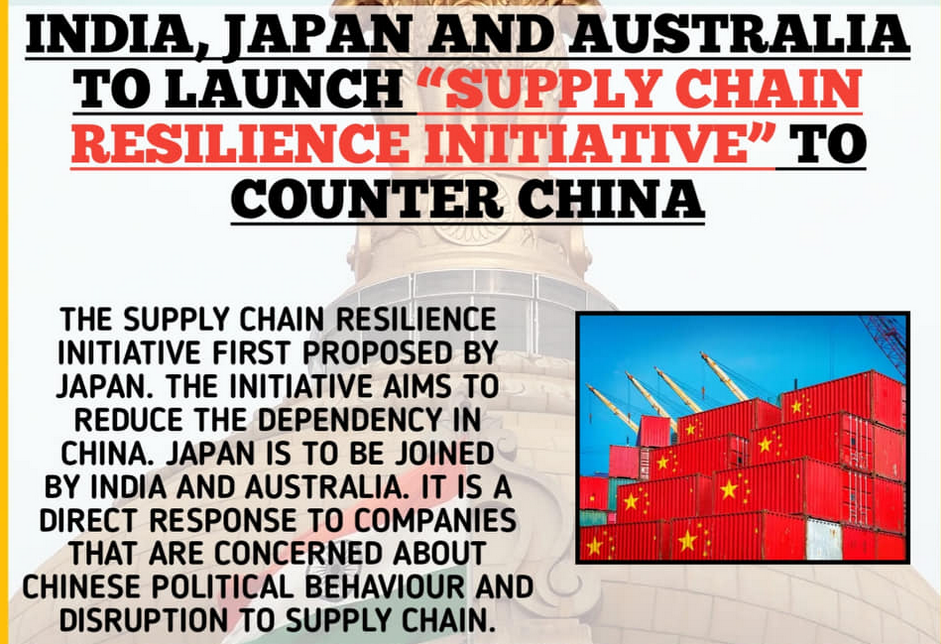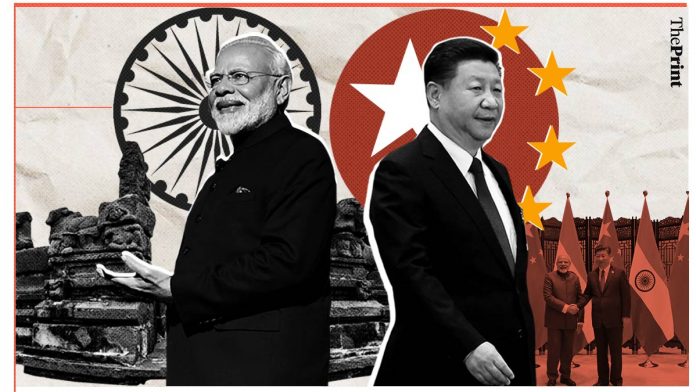In a recent move, India has opposed Japan’s strategic suggestion to include the Asean countries in the Supply Chain Resilience Initiative (SCRI). Supply Chain Resilience Initiative is the initiative which seeks to reduce dependence of countries on China and subsequently aims to build resilient supply chains in the Indo-Pacific region.
Thus, the trilateral (SCRI) aims to create a free and transparent trade and investment environment. Countries which are part of the SCRI are namely India, Japan and Australia. While Japan is keen to include the strategic partnership of 10-member Association of South East Asian Nations (Asean), officials have maintained that New Delhi wants to safeguard its interests from China’s indirect influence through the bloc as it builds on its self-reliance through reduced dependence on imports. Supply Chain Reselience Initiative was launched byu Japan on August 20, 2020.

An official familiar with the matter has stated that “We aren’t keen on Asean joining the initiative right now. We need to safeguard our interests and China’s influence through the grouping”. Reportedly, the cumulative gross domestic product of the three countries in 2019 was $9.3 trillion, and their services trade and merchandise goods were worth $2.7 trillion and $0.9 trillion, respectively.
Japan’s move to include ASEAN countries comes as it seeks to build upon its existing bilateral frameworks like the Asean-Japan Economic Resilience Action Plan and India Japan Industrial Competitiveness Partnership to attract foreign direct investment in the region.
Japan’s Kajiyama had suggested the digitalization of trade procedures and support for the capital expenditures as a part of the strategic initiative. Japan wants to build on its pre-existing scheme where japan is already supporting capex into ASEAN countries, which will emphatically serve as one reference point for the initiative.
Though India might be skeptical of the entry of the asean countries in the SCRI at the moment but it is not ruling out the possibility of a future partnership. This can be understood as an official familiar with the matter has also stated that “We will see later if Asean can join, later”.
India’s rejection of inclusion of Asean countries in partnership comes from the fact that the the SCRI was launched to tackle China’s growing political and economic influence in the region, but the inclusion of ASEAN countries could mean indirect Chinese influence, which can go against the strategic Supply Chain Resilience Initiative.

The three countries are additionally considering setting up industrial parks, a mechanism to address resolution of trade and investment barriers. Complementary to the industrial parks, the three countries are also planning on a streamlined risk management system, and improved sea and air connectivity between the three nations.
Moreover, it is to be noted that at least 10 product and services categories have been identified from the perspective of the volume of trade in all categories of goods for collaboration.
Thus it can be rightfully said that signatories of the SCRI are all set to take on China, sending it a grave message for concern and to positively build further upon its strategic partnership to achieve its retaliatory motives.

